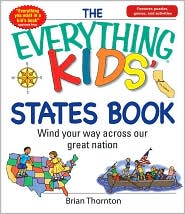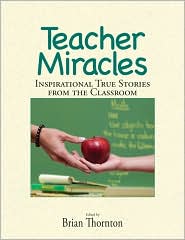
Heather: First of all, congratulations on your review from the Washington Post for your most recent book, The Book of Bastards: 101 Worst Scoundrels and Scandals from the World of Politics and Power. The title alone pretty much describes what the book is about, but I loved this quote from the Post: “The wonder is that Thornton, a Seattle-based teacher who has stood before students at every level from sixth grade to college, finds only 101 bastards in our more than 200-year history. I smell a series.” So let’s talk about that first. Is there a sequel in the works?
BRIAN: The short answer is ‘yes, there is a sequel of sorts in the works for The Book of Bastards’. The longer answer is more complicated. The Book of Bastards deals solely with political corruption/economic villainy in American history, and while it would have been easy to populate the pages of several more books with American bastards, we’re doing something a little different with the follow-up, a book with a working title of The Book of Ancient Bastards. This one deals with historical bastards from the ancient and medieval worlds. Roman emperors and medieval popes alone give us a rich tradition of notorious bastardry on a much earlier stage.
Heather: As a history buff myself, that one sounds very interesting! Your latest release is for adults, but you also have a series you write for kids called Everything Kids Series. Tell us how being a history teacher led to writing these books.

BRIAN: I was actually brought in to write those two books after my publisher (Adams Media) had already established a readership with its broad-based Everything Kids series. The Everything Kids’ Book of the States and The Everything Kids’ Book of the Presidents constituted a two-book deal of the type that the publishing industry calls “work-for-hire.” So since it wasn’t my original idea, and I didn’t pitch the work to the publisher, I don’t receive royalties, ebook/foreign rights, or anything along those lines for these projects; just a straight fee for writing the two books.
What happened was that an acquisitions editor at Adams Media was casting about for a history teacher to write these books, talked to my editor/long-time contact there, and was referred to me. I was just wrapping up an extensive and exhausting project (Teacher Miracles) and didn’t initially have much enthusiasm for taking on anything new. But the subject matter appealed to me, and it was hard to say “no,” when they came back with another offer.
So I wrote those two books (40,000 words apiece) in eight weeks. They turned out quite well and I was very pleased with the end result (even though they were work-for-hire, I came up with the chapter layout templates and quick information pieces myself. That was also a fair amount of work.). 2006 was a busy year for me. I wrote those two books and edited another one, all while also working a full-time job.
Heather: Wow—that’s amazing. No more excuses for not finding time to write. The more I meet other authors, the more I realize how versatile they are. This includes you! Tell us about what led you to compile the inspirational book, Teacher Miracles: Inspirational True Stories from the Classroom.

BRIAN: That book was probably more work (acting as the collection editor, soliciting stories, editing and re-editing them, etc.) than the actual writing of any two of my other books combined. I’m very proud of the end result, and of the fabulous teacher/authors with whom I worked to put that volume together. Many of them were first-time authors, and you wouldn’t have known it to read the end-result.
Heather: Teachers are amazing, and I’m glad you did the work to bring that book to the public. Non-fiction, history topic books aren’t you only forte. You’re published in a Noir Mystery anthology centered on stories that take place in Seattle. Are you dabbling, or are you pursuing the mystery genre as well? After all, I did meet you at Bouchercon—a mystery writers conference.
BRIAN: I don’t know many writers these days who don’t wear many hats. You can’t afford not to in the current publishing climate, especially when you’re getting offered money up-front for doing it.
I actually started out intending to be a mystery writer. I began work on my first novel in 1998 and finished it three years later, after any number of many false starts and detours.
I learned a lot from writing that novel; most importantly, I learned how not to write a novel. I also learned that writing is hard work, and that I had a lot of company in having written an initial novel that was more instructive than publishable. Authors even have a name for it: your “mistake novel.”
But I kept at it, revising that first novel, and taking the advice of a friend who worked in marketing, began to network. In 2004 came the opportunity to publish my first piece of nonfiction. Nonfiction has kept me hopping ever since.
During all that time I haven’t stopped working on fiction. But eight books in six years takes a toll on both your schedule and your energy level, so most of the things I wrote to continue honing my fiction chops were short stories. A couple of publications in Alfred Hitchcock’s Mystery Magazine led to my being asked by collection editor Curt Colbert (author of the Jake Rossiter novels) to submit a story for consideration for publication in Akashic Books’ Seattle Noir.
I dusted off an idea I’d had about back in grad school, while doing research on the Immigration and Naturalization Service’s profiles of Chinese immigrants looking to get around restrictive immigration laws back during the 1890s. The result was a short story called “Paper Son.”
And I’m getting back to fiction work once I wrap up The Book of Ancient Bastards. I’ve got a final draft of a mystery (this one a historical that takes place in 1840s Washington, D.C.) to finish.
Heather: I have one of those “mistake novels” (in fact, about 3). Your 1840’s DC mystery sounds very interesting. Every writer wants to know how an author got started and how he/she landed a publishing contract. What was your experience? Do you have an agent? Or did you submit directly to a publisher? Also, was Adams Media your first publisher?
BRIAN: In 2004 I got an opportunity to publish my first book. One of those connections I mentioned above was an editor who needed a book written about Abraham Lincoln by someone with a background in History. I have an M.A. in American/European History, so I fit the bill. The editor had read a draft of my “mistake” novel (God love her), and knew that I could write a good sentence. She asked me if I’d be interested in writing this one book on Lincoln as “work-for-hire.” I agreed to do it, thinking this would be a one-off.
Six years later I’ve got eight nonfiction books to my credit. This includes one that I’ve ghost-written for someone else, another that I wrote for the publisher (and for which I was paid), that they wound up “repurposing” into content for another book of theirs (when you write “work-for-hire,” you don’t control the presentation/publication of the work in question).
And that’s how I got my start. Adams Media was in fact my first publisher, I did submit directly to the publisher (although my work was solicited, rather than the result of a cold query). I didn’t have an agent to start with; I negotiated my own contracts for years because I didn’t have much time (I thought) to hunt for an agent. I do have an agent now, and my contracts/benefits/payouts are the better for it. She more than earns her cut.
Heather: You never know when a good relationship with an editor will pay off. And finally, what are the top three pieces of advice you’d give an unpublished writer?
BRIAN:
1. Thornton’s First Law: it costs you nothing to be gracious. If you’re going to ask someone for something (see networking below), be polite. Most authors I know are ridiculously generous with their time and sharing connections (it’s in their best interests to do so), but don’t ask to be referred to the agent of someone you just met, whose work you’re not familiar with, and who is just as busy trying to get ahead with their publishing career as you are.
2. Network, network, network. Join writers’ associations. Sisters in Crime has a great program for mentoring budding authors called “guppies.” International Thriller Writers has something similar (not too familiar with this one though). I got my first book contract as a direct result of a connection I made through Mystery Writers of America. It pays dividends, and it’s a great opportunity to make friends with other like-minded folks whose spouses/significant others’ eyes glaze over when they start trying to explain the plot of their latest novel to them.
3. Lastly, don’t screw around with negotiating your own contracts. If you get offered a boilerplate contract (as I have been repeatedly) by a publisher and you’re un-agented, MAKE THE TIME to beat the bushes for an agent. Anything you can negotiate (especially with little or no publishing track record) your agent will be able to improve upon. Don’t be afraid to ask for agent referrals; most agents only take on new clients that way. Of course, it’s a lot easier to request a referral from an author who knows and likes/respects you than it is to try to get one from one who’s signing you just attended.
Heather: Great advice, Brian. Amen 3x! Thanks for the interview, and I wish you all the best.
You can visit Brian's Blog Here
Or check out all of his books here.







1 comment:
Great interview. Thanks for the wonderful post.
Post a Comment